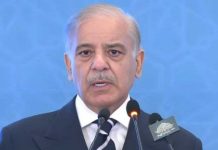ISLAMABAD, JUN 6 /DNA/ – The presence of various militant groups on Afghan soil poses a significant challenge to regional security, according to veteran journalist and former Associated Press correspondent Kathy Gannon. She added that while Afghanistan might not want all the militant groups on its territory nor did Kabul invite them all, but they were still there. She was speaking at an event titled “Geopolitical Shifts and Security Challenges: Pakistan, Afghanistan, and the Regional Power Play” organized by the Institute of Regional Studies (IRS).
While appreciating recent positive developments in relations between Pakistan and Afghanistan, Gannon emphasized the importance of restoring trust between Pakistan and Afghanistan. She was of the view that Pakistan could better influence the Afghan government by treating it as an equal and a partner in pursuing its regional objectives. She also urged Islamabad to take steps against all terrorist groups through a concerted long-term strategy to address its internal security challenges. Gannon maintained that Afghanistan was still relevant for the US policymakers because of the increasing Chinese influence in the country as well as its mineral wealth.
Ambassador Asif Durrani, Pakistan’s former Special Representative for Afghanistan, referred to Pakistan and Afghanistan as twin brothers who had come to each other’s help whenever needed notwithstanding the state of their relationship at the time. He hailed the upgradation of diplomatic relations between Pakistan and Afghanistan and the inclusion of Afghanistan in the China-Pakistan Economic Corridor (CPEC) as positive developments. He added that in the recent high-level trilateral meeting between Pakistan, Afghanistan, and China, the three countries had agreed to oppose terrorism, carry out law enforcement and security cooperation, remain vigilant against external interference in the internal affairs of regional countries, and safeguard regional peace and security. Ambassador Durrani was of the view that there had been a decline in terrorist attacks in Pakistan since the positive development in diplomatic relations between Pakistan and Afghanistan.
President IRS Ambassador Jauhar Saleem said that despite challenges, regional geopolitics and mutual interests had continually pushed both countries to engage and re-engage across various levels. He added that recent developments pointed toward a more constructive phase in bilateral engagement and expressed his hope that the trilateral dialogue among Pakistan, Afghanistan, and China most recently held in Beijing would strengthen regional cooperation on counterterrorism, stability, and economic integration.
Aarish Khan, the Head of the Afghanistan Program at IRS, maintained that while the Taliban had not acceded to the demands of the international community on political inclusion, women education, and individual freedoms, they were still making good progress in improving diplomatic relations not only with important capitals like Beijing, Moscow, and Islamabad but also with the UN as was demonstrated by the Doha III talks las year. He added that the Afghan interim government had taken concrete steps against the TTP in the recent past.
Ambassador Abrar Hussain, Pakistan’s former Ambassador to Afghanistan, also argued that Islamabad’s top priority in Afghanistan was to promote peace and stability notwithstanding whichever government was in power in the country.

















